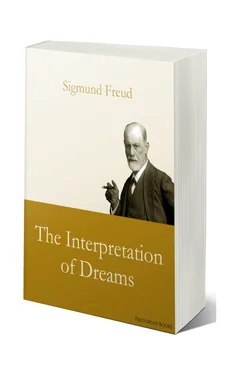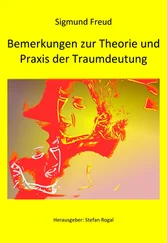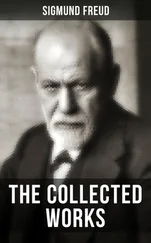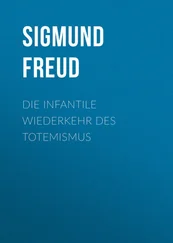From a friend I have learnt of a dream very similar to that of my boy. It concerned an eight-year-old girl. The father had undertaken a walk to Dornbach with the children, intending to visit the Rohrerhütte, but turned back because it had grown too late, and promised the children to make up for their disappointment some other time. On the way back, they passed a sign which showed the way to the Hameau. The children now asked to be taken to that place also, but had to be content, for the same reason, with a postponement to another day. The next morning, the eight-year-old girl came to the father, satisfied, saying: "Papa, I dreamt last night that you were with us at the Rohrerhütte and on the Hameau." Her impatience had thus in the dream anticipated the fulfilment of the promise made by her father.
Another dream, which the picturesque beauty of the Aussee inspired in my daughter, at that time three and a quarter years old, is equally straightforward. The little one had crossed the lake for the first time, and the trip had passed too quickly for her. She did not want to leave the boat at the landing, and cried bitterly. The next morning she told us: "Last night I was sailing on the lake." Let us hope that the duration of this dream ride was more satisfactory to her.
My eldest boy, at that time eight years of age, was already dreaming of the realisation of his fancies. He had been riding in a chariot with Achilles, with Diomed as charioteer. He had, of course, on the previous day shown a lively interest in the Myths of Greece, which had been given to his elder sister.
If it be granted that the talking of children in sleep likewise belongs to the category of dreaming, I may report the following as one of the most recent dreams in my collection. My youngest girl, at that time nineteen months old, had vomited one morning, and had therefore been kept without food throughout the day. During the night which followed upon this day of hunger, she was heard to call excitedly in her sleep: "Anna Feud, strawberry, huckleberry, omelette, pap!" She used her name in this way in order to express her idea of property; the menu must have included about everything which would seem to her a desirable meal; the fact that berries appeared in it twice was a demonstration against the domestic sanitary regulations, and was based on the circumstance, by no means overlooked by her, that the nurse ascribed her indisposition to an over-plentiful consumption of strawberries; she thus in the dream took revenge for this opinion which was distasteful to her.
If we call childhood happy because it does not yet know sexual desire, we must not forget how abundant a source of disappointment and self-denial, and thus of dream stimulation, the other of the great life-impulses may become for it. Here is a second example showing this. My nephew of twenty-two months had been given the task of congratulating me upon my birthday, and of handing me, as a present, a little basket of cherries, which at that time of the year were not yet in season. It seemed difficult for him, for he repeated again and again: "Cherries in it," and could not be induced to let the little basket go out of his hands. But he knew how to secure his compensation. He had, until now, been in the habit of telling his mother every morning that he had dreamt of the "white soldier," an officer of the guard in a white cloak, whom he had once admired on the street. On the day after the birthday, he awakened joyfully with the information which could have had its origin only in a dream: " He(r)man eat up all the cherries!" What animals dream of I do not know. A proverb for which I am indebted to one of my readers claims to know, for it raises the question: "What does the goose dream of?" the answer being: "Of maize!" The whole theory that the dream is the fulfilment of a wish is contained in these sentences.
We now perceive that we should have reached our theory of the hidden meaning of the dream by the shortest road if we had merely consulted colloquial usage. The wisdom of proverbs, it is true, sometimes speaks contemptuously enough of the dream—it apparently tries to justify science in expressing the opinion that "Dreams are mere bubbles;" but still for colloquial usage the dream is the gracious fulfiller of wishes. "I should never have fancied that in the wildest dream," exclaims one who finds his expectations surpassed in reality.
Конец ознакомительного фрагмента.
Текст предоставлен ООО «ЛитРес».
Прочитайте эту книгу целиком, купив полную легальную версию на ЛитРес.
Безопасно оплатить книгу можно банковской картой Visa, MasterCard, Maestro, со счета мобильного телефона, с платежного терминала, в салоне МТС или Связной, через PayPal, WebMoney, Яндекс.Деньги, QIWI Кошелек, бонусными картами или другим удобным Вам способом.












